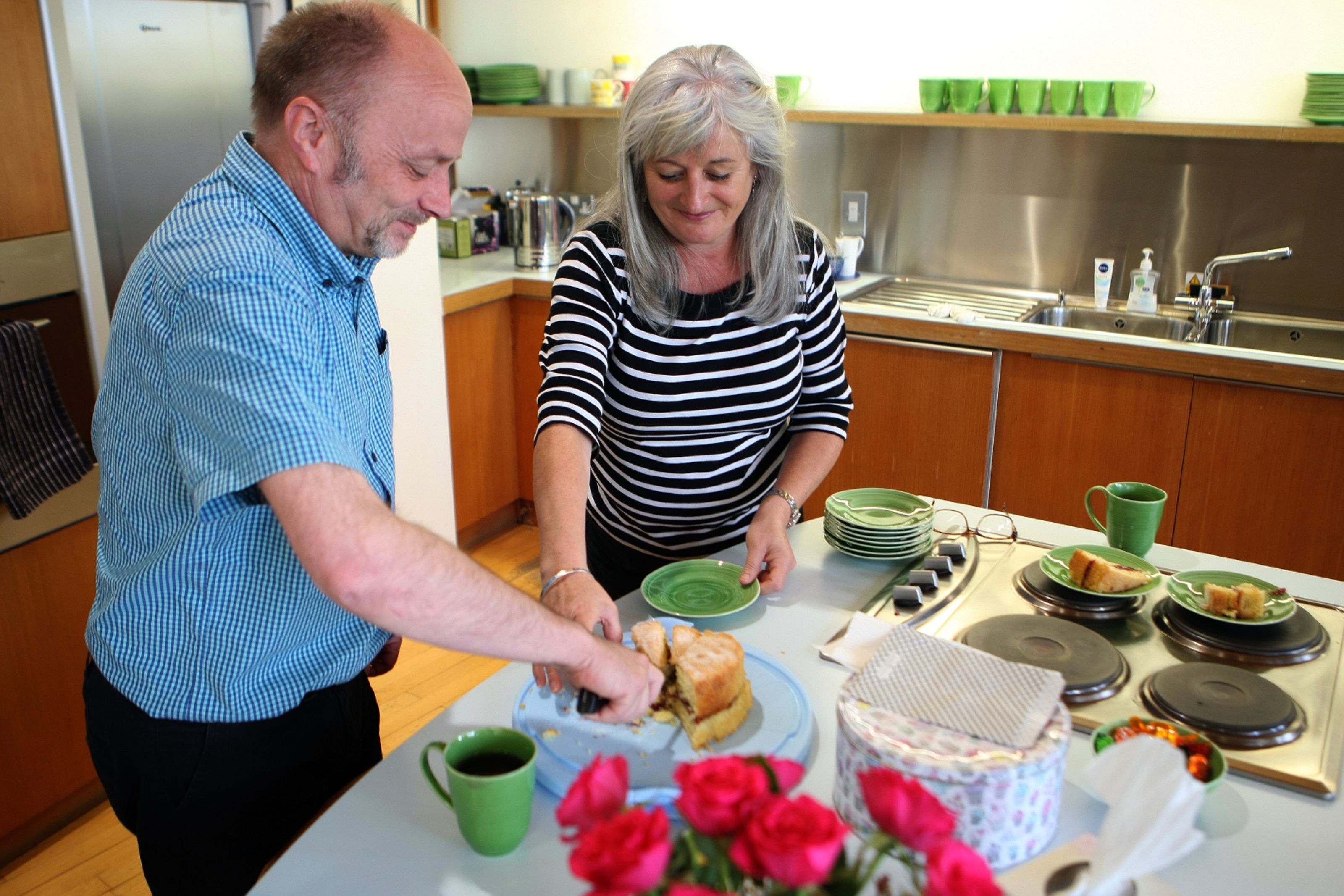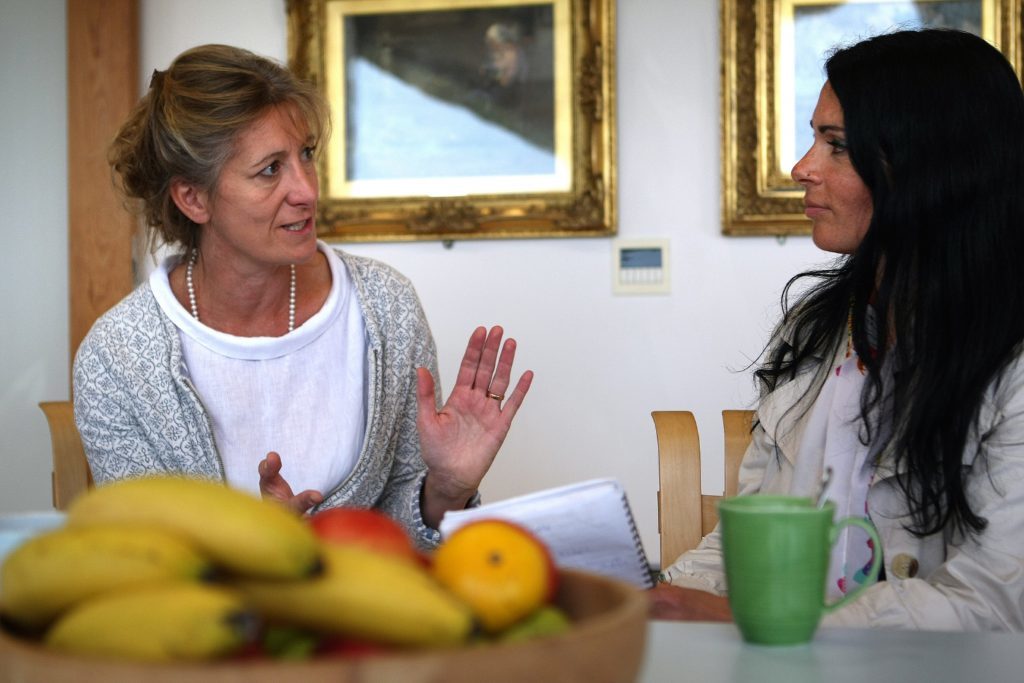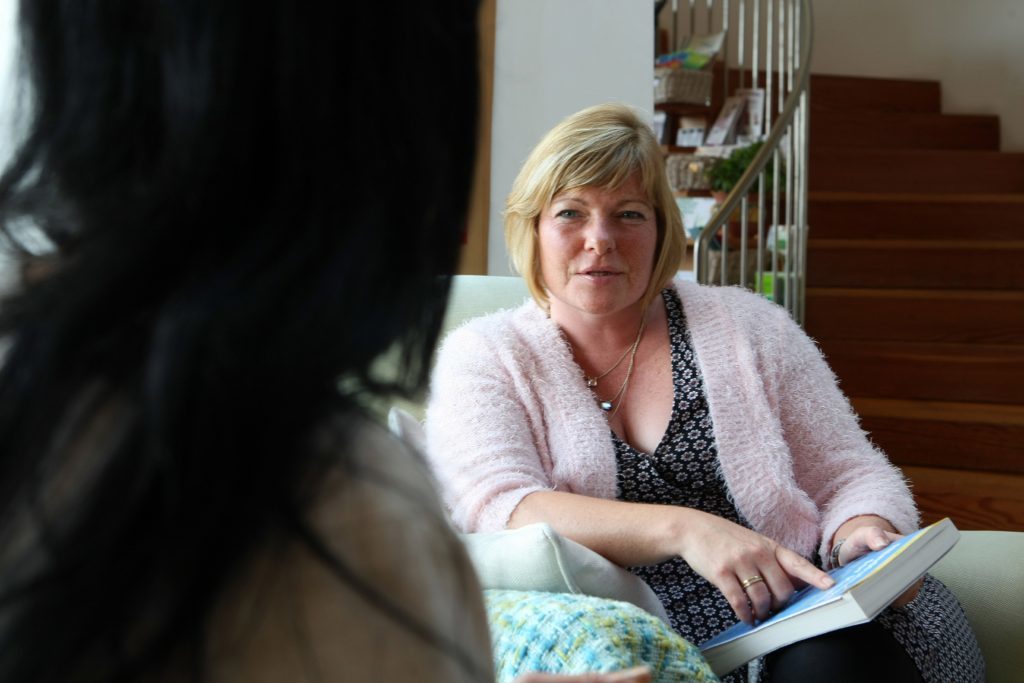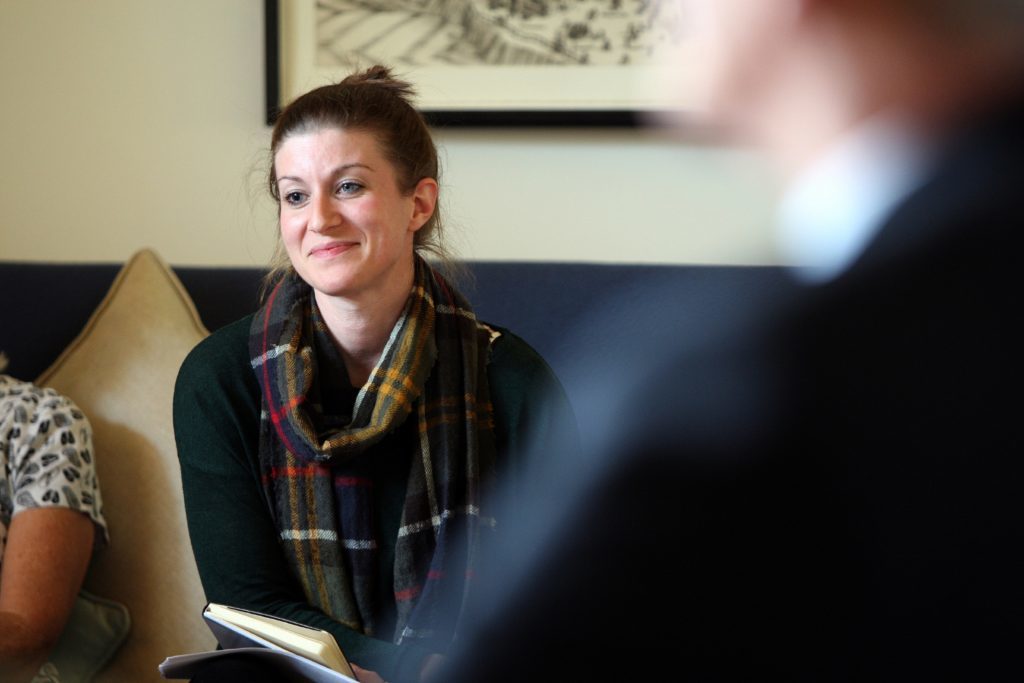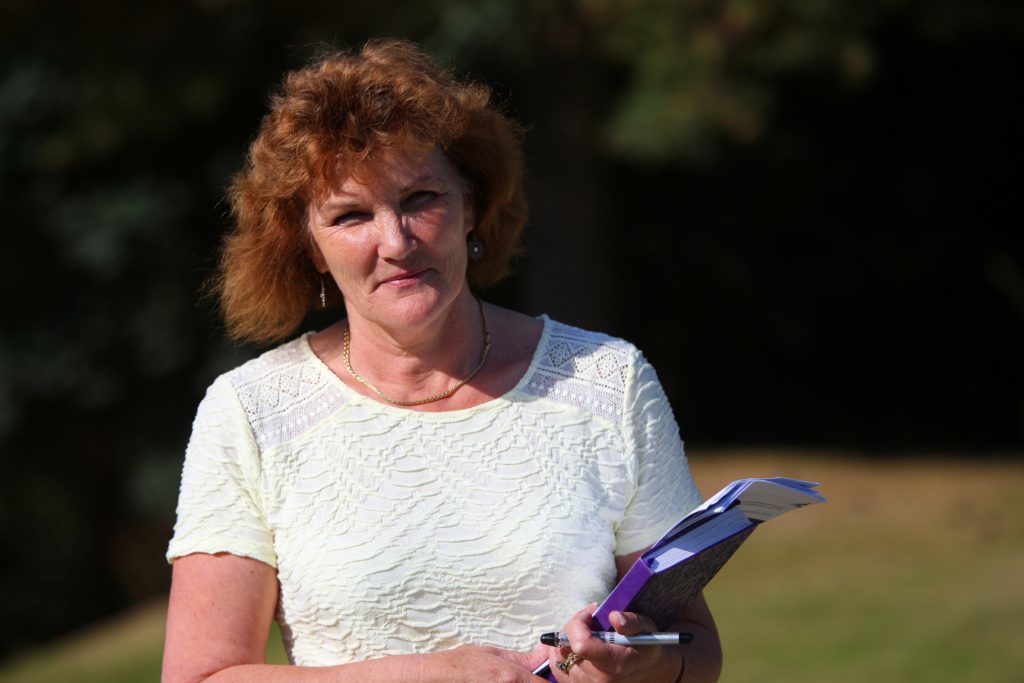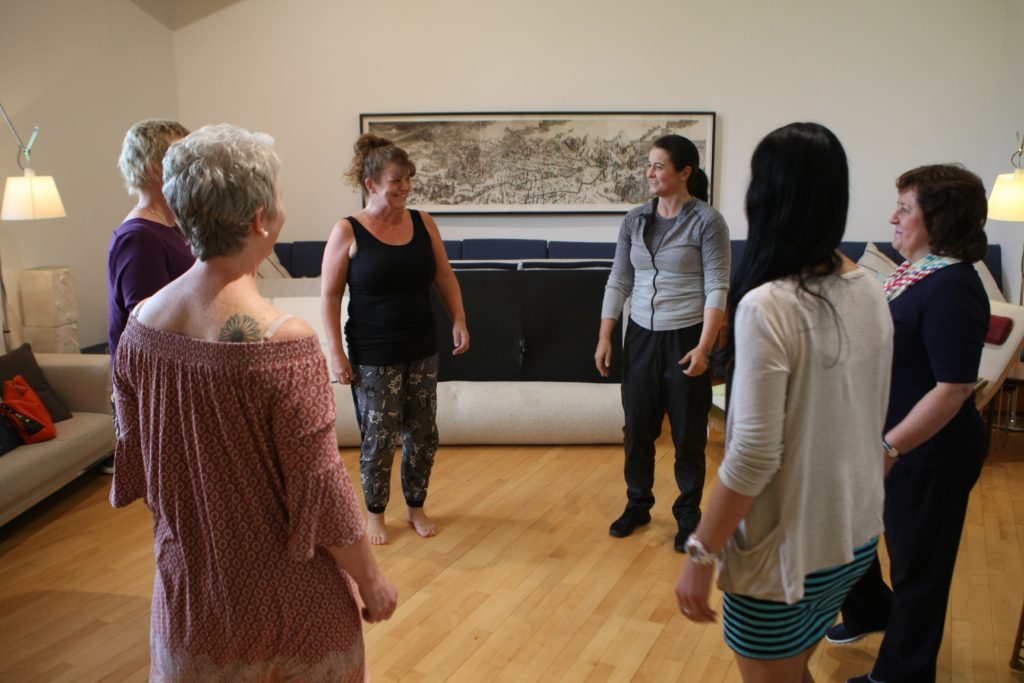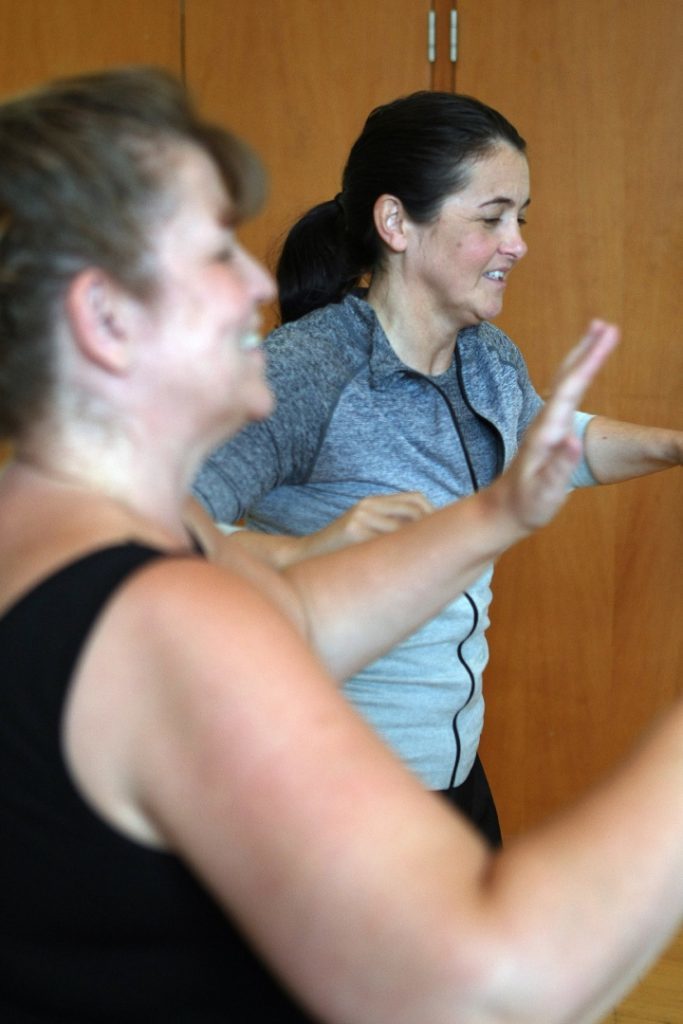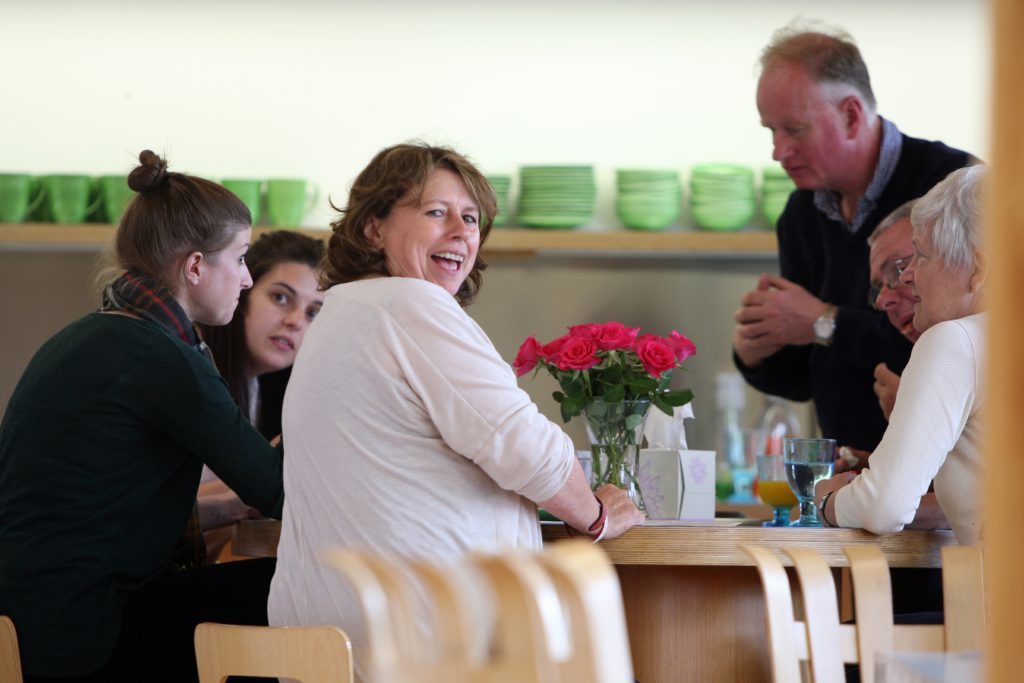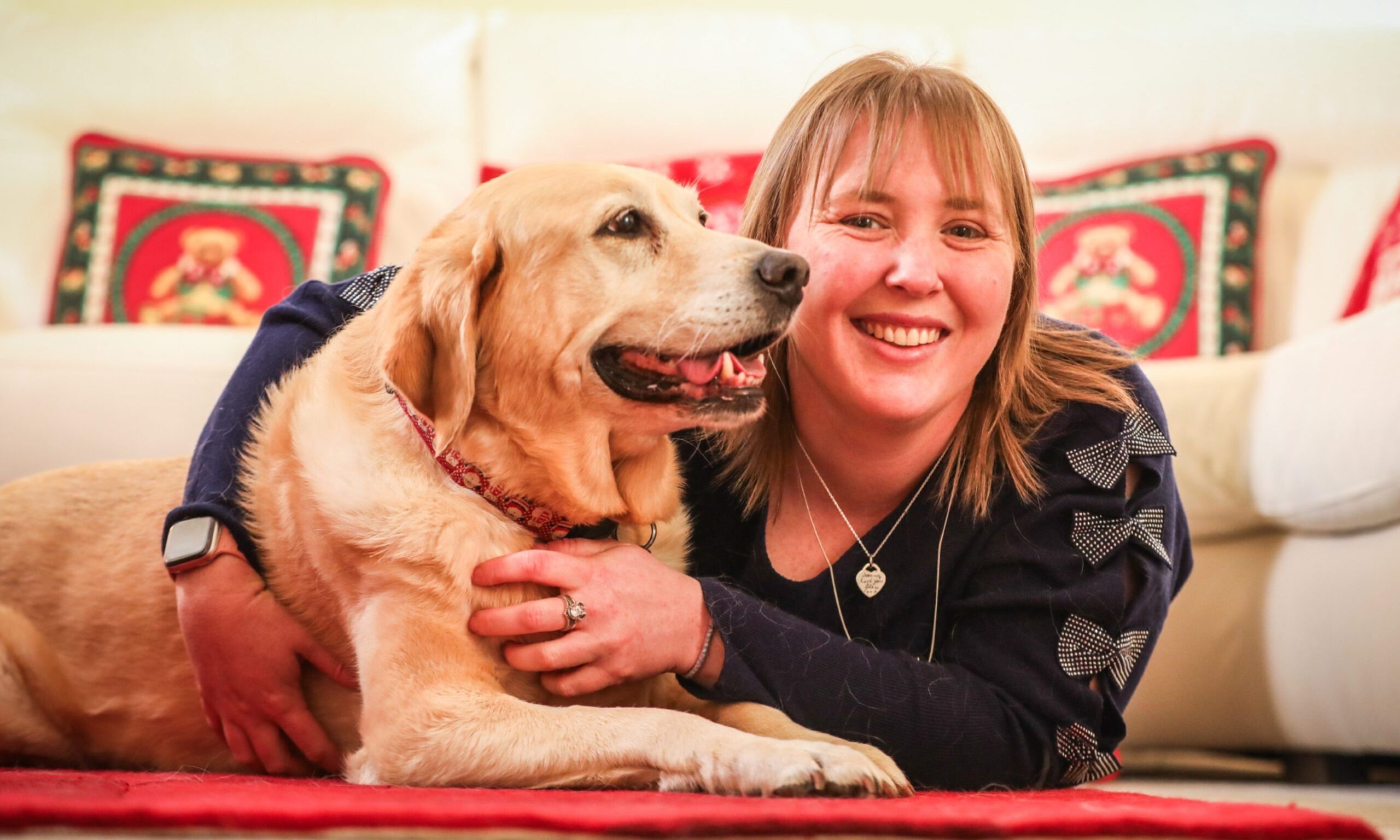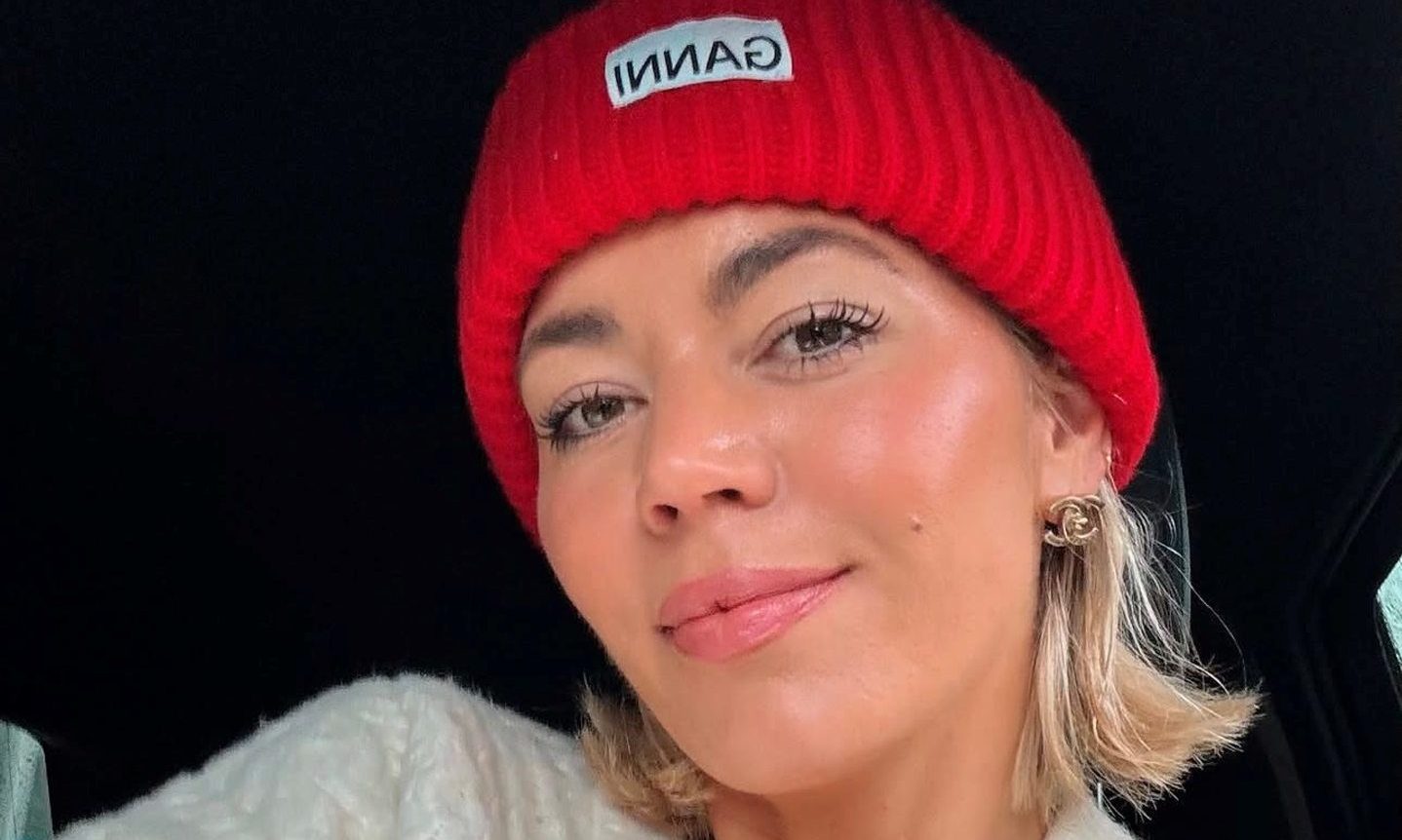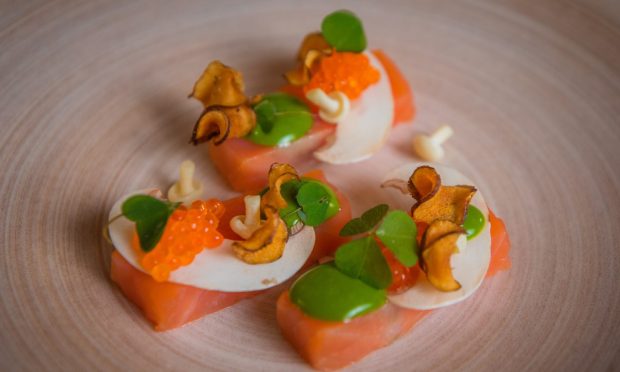Maggie’s centres offer free practical, emotional and social support to people with cancer and their family and friends. We spend at day at Maggie’s Dundee and make some surprising discoveries…
Pop into the Maggie’s Centre in Dundee and the chances are, you’ll be met with the wonderful aroma of freshly brewed coffee – and, if you’re lucky, homemade cake.
That was certainly my experience when I turned up at the centre, in the grounds of Ninewells Hospital, last week.
Groups of people were clustered round the kitchen table making cups of tea and coffee while tucking into a sumptuous Victoria sponge.
There’s no doom and gloom here, despite the fact most of the centre’s users are, in some way, affected by cancer. Rather, it’s an uplifting, inspiring, welcoming, warm and friendly hub of positivity.
On the day I visit, there’s a packed programme of activities, with everything from nutrition workshops to walking, gardening and bereavement groups, as well as breast prostheses fitting, a “Where Now?” course, and brain tumour network group.
Other days host coping with hair loss sessions, mindfulness classes, creative writing groups, yoga, relaxation, tai chi, lung or prostate cancer groups…the list goes on.
The centre has a team of qualified professionals on hand to offer a programme of support that’s been shown to improve physical and emotional wellbeing during treatment and recovery.
The amazing thing about Maggie’s is that it’s free and you don’t need a referral from a doctor, although your medical team may encourage you to go along as what they offer is designed to complement the specialist cancer care the NHS provides.
And, as fundraising manager Valerie Busher says, it’s a service which enables people to gain control of their lives.
“Cancer can feel like a whirlwind but Maggie’s helps you gain control where possible,” she says.
“You can drop in when you want and use Maggie’s as little or as often as you need. Even the simple act of making your own cup of tea here can be empowering. And the fact you get your tea and coffee in a proper cup – not a polystyrene one – makes a huge difference.”
I find former cervical cancer patient Karen Campbell sitting in a quiet corner reading a book about mindfulness.
“I just popped in to have some space,” she tells me. “It’s such a fantastic place where you can just drop in, have a cup of tea, forget about everything and relax.
“I had successful treatment and I’m clear now but I still go to the cervical cancer support group every month where I can help those who’ve been newly diagnosed and answer questions about my experience. It’s a place to get things off your chest and talk to people on the same level.”
Karen also has weekly counselling sessions with centre head and consultant clinical psychologist Lesley Howells where they discuss lifestyle changes.
Cancer support specialist Karen MacKinnon says Maggie’s is about supporting people “the whole way through” their journey. That includes offering bereavement counselling.
“When a loved one dies, it’s a very difficult time and people can benefit from shared understanding. By coming to the bereavement group, they can feel less isolated.
“Part of the problem is that people only really know bereavement from what they’ve seen on TV, but the reality is, it goes deeper than that.”
Sian Clifford, who leads the bereavement group, tells me sessions act as arenas where people can share and normalise grief.
“They enable emotional expression but they also ground people; I can’t leave someone to go out into the world with an open box of grief. But people are surprised to discover that we also laugh a lot and use lots of humour.”
One of cancer support specialist Lorna McGoldrick’s roles is to provide a warm welcome for people dropping in to Maggie’s.
“My job is to open up conversations. When people come in, you need to work out what kind of chat they want to have. They might be in shock or they might want to cry. We can take them into private nooks and crannies and bring them to an area they feel sheltered, but you don’t want to give the impression you’re embarrassed by their tears.
“Others come in and want advice on wigs or hats, or simply to look at books. Here at Maggie’s, I see the best of human nature: people reaching out to one another, showing kindness, courage, strength, incredible spirit and huge generosity despite really difficult circumstances.”
Benefits advisor Sheila Kidd’s job is to take away some of the stress those diagnosed with cancer are experiencing. I accompany her as she visits patients in Ninewells and offers benefits advice. People gravitate towards her like moths drawn to a flame – and for a whole host of reasons.
“I help people work out what benefits they may be entitled to and offer practical help with the processes of filling in complex forms,” she tells me, showing me a daunting stack of paperwork.
“Some travel from miles away, spending a fortune on fuel, so they need help with travel grants. Others aren’t able to work and they worry how they’ll pay the mortgage or look after their families. Filling in complicated forms is the last thing they need to worry about when faced with a diagnosis, so I’m there to help. It can be a relief when I’m there to take all that stress out of their hands.”
Meanwhile, the Maggie’s “Where Now?” programme is designed to support those adjusting to life after cancer. The seven-week course focuses on everything from exercise to healthy eating, emotional wellbeing and nutrition.
I drop in on a group of women doing gentle aerobics with physical activity specialist Valerie Duguid.
“Everybody has different physical needs but a side effect of cancer treatment is loss of physical function,” she says. “It’s about looking at how we can improve strength and endurance and get back a level a fitness.”
Julie-Anne Alexander says, for her, it’s about getting back to the “new normal”.
“The ‘Where Now?’ course is brilliant in terms of boosting confidence and meeting other people who’ve been through similar treatment.
“It helps on so many levels, and even sessions on how to use makeup can be beneficial. Cancer can change the dynamics of relationships and these sessions show you how to help your family understand what you need.”
Angela Jones says she feels a sense of peace wash over her when she comes to the Maggie’s Centre. “It’s like an oasis – it feels like another home.”
And Jane Murray says she finds it easier to come here and talk to people who have been on similar journeys, plus she’s made lifelong friends along the way.
It’s important to centre manager Lesley Howells that people and their families feel comfortable just dropping into Maggie’s any time, trusting that they will help them work out what cancer support is right for them.
“This could include financial advice, emotional support, help to make healthy changes to their lifestyle or advice about talking with their employer or their children,” she says.
“Maggie’s Dundee is so proud to work alongside our NHS and local council colleagues to help people and their families deal with the practical and emotional impact of cancer.”
info
There are more than two million people in the UK living with, through and beyond cancer – with 300,000 new diagnoses each year.
It costs £2,400 to run a Maggie’s Centre for a day and the charity is only able to open its doors free of charge thanks to the fantastic support from the communities around the Centres.
By signing up to Pay for a Day and pledging to donate or fundraise £2,400, you will be helping Maggie’s to continue providing its unique support to people with cancer.
To find out more, call Valerie Busher, centre fundraising manager at Maggie’s Dundee, on 07825 056384 or visit www.maggiescentres.org/campaigns/pay-for-day/
